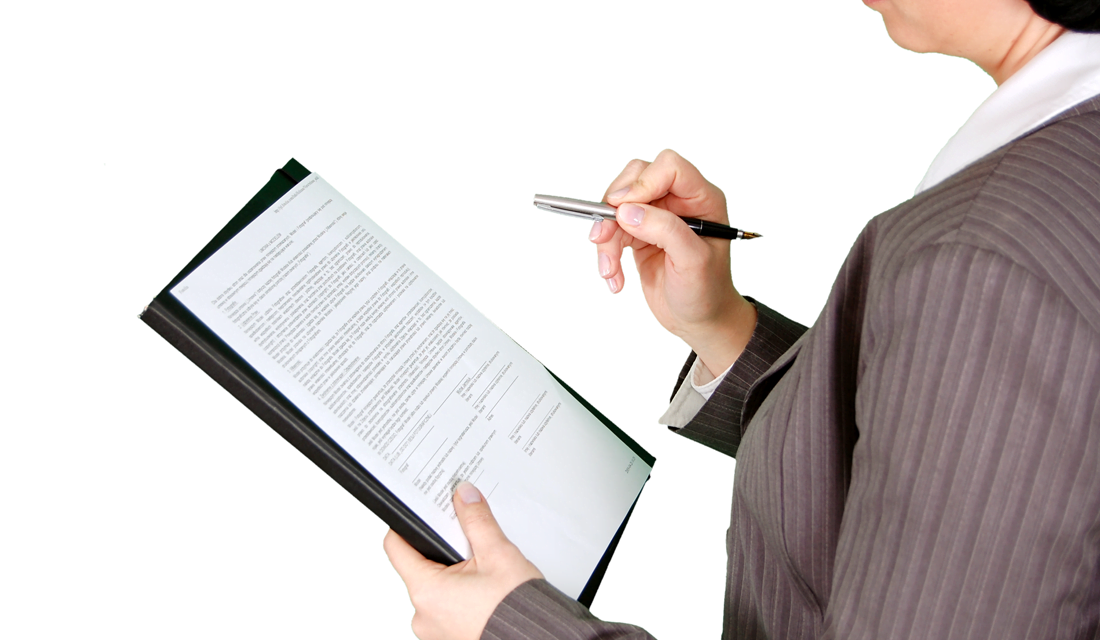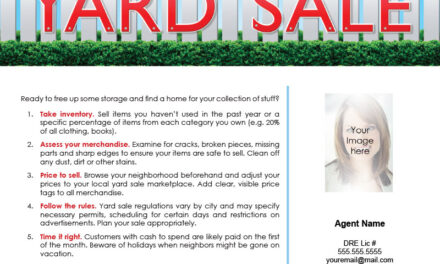The California Department of Real Estate (DRE) completes hundreds of audits on brokerages each year. What are the steps you can take to avoid an audit of your office — and how can you best prepare and comply when you are being audited?
Read on for information on how to protect your brokerage before, during and after a DRE audit.
Steps to avoid an audit
The most common violations identified in a DRE audit involve:
- trust fund handling;
- record retention;
- fictitious business name use;
- improper display of license numbers;
- failure to supervise salespersons; and
- mortgage loan disclosures.
Thus, ensuring accurate records and correct practices of these items is the best way to avoid being audited. Your future self will greatly appreciate the preventative measures you take today.
Primarily, the DRE’s audit focuses on ensuring trust funds are handled correctly, according to the DRE’s Summer 2017 Real Estate Bulletin.
How does the DRE find out about improper business practices that prompt an audit?
Sometimes, the DRE finds out about a brokerage’s bad practices in a straightforward way, for example, when a broker fails to report to the DRE when required. Other times, the DRE receives a complaint from a consumer or other licensed agent or broker regarding the broker’s improper practices. These are called investigative audits.
But even when a broker follows the letter of the law, sometimes random audits also occur.
These random, routine audits cannot be avoided, as they are performed on brokerages randomly selected by the DRE. When a brokerage is randomly selected for an audit, you — the broker — will be notified by a letter or sometimes a phone call. And if this happens, don’t panic. Keep the tips discussed later in this article in mind and your nerves in check and you’ll emerge unscathed.
Further, the DRE also conducts broker office surveys. These surveys are unannounced visits to your brokerage. During these impromptu surveys, your business and documentation practices are reviewed in person by DRE staff. Office surveys are less thorough than an audit, but may uncover issues that demand a deeper investigation, or a full-scale audit if warranted by the violations that come to light during the survey.
Prepare for an audit
Be aware: a DRE audit is no mere formality. In fact, only about one-in-four audits result in no violations. The best way to be one of the successful few who receive no violations is to prepare. Remember the old adage of location, location, location? Well, in the context of your response to an audit, revise this expression to prepare, prepare, prepare.
Once you are notified by the DRE you will be audited, first complete the DRE’s Broker Self-Evaluation checklist. Even if you are not audited, this is a helpful tool to use regularly to ensure you are running a tight ship and remaining compliant in the event of a future audit. Further, and more pragmatically, abiding by the practices outlined in the checklist is also good business.
If the answer to one or more of the items on the self-evaluation is “no,” see the Broker Compliance Evaluation Manual for information on how to correct the bad practice.
If you’re really lost on how to comply with DRE brokerage rules, you may consider contacting a DRE compliance consultant. Whether the cost for professional hand-holding is worth the peace of mind offered by such consultant services is a decision all brokers ought to consider.
Alternatively, you may be better off consulting an attorney, especially if your brokerage is large and preparing for the audit will take a great deal of time and staff resources. An attorney can help focus the auditor’s scope of their investigation, reducing the time the auditor is in the office taking up your valuable time. Further, when the audit reveals violations that the broker can swiftly correct, an attorney is useful for communicating with the DRE to possibly diminish the penalty from disciplinary action to a lesser warning.
What happens during a DRE audit
When a DRE audit is triggered, the brokerage is notified they are going to be audited by phone and formal letter. When the auditor arrives, they will ask a series of questions, examine the office — including signs and sales agents’ promotional materials — and ask to review the brokerage’s files.
Have the following documents available when the auditor arrives to speed the process along:
- copies of all salespersons’ and brokers’ licenses you employ;
- copies of all salespersons’ and broker associates’ employment agreements [See RPI Form 505 and 506];
- bank and reconciliation statements for trust accounts [See RPI Form 544-1];
- trust fund records and receipts, deposits and disbursements;
- transaction files; and
- corporate records.
Depending on the size of your brokerage, an auditor may be on-site examining files and brokerage practices for a few days, up to several weeks. Thus, the duration and level of scrutiny is comparable to that of an IRS audit.
Once the auditor is finished with their examination, they will sit down with you and reveal their findings. When the auditor identifies a violation, you have the chance to respond and point out any facts the auditor may have missed. If you hired an attorney to assist you with the audit, they ought to be present for this meeting as part of their representation.
What comes after the audit
When the auditor has completed their investigation and shared their findings with you, the next steps depend on what the audit found.
If the audit identifies no violations, great! You can rest easy (until the next time you are audited).
If the audit identifies one or more violations, the DRE may:
- issue a warning; or
- take formal disciplinary action.
You will be notified of the violation via an Accusation or Statement of issues.
Your response is required within 15 days if you want a hearing on the accusation. At that time, you may also request to see the DRE’s file on your violations.
Sometimes, your attorney may be able to arrange a settlement with the DRE, which becomes part of the public record.
If you are unable to reach a settlement, your violations will be discussed at a hearing, where a judge will decide:
- what fines you need to pay;
- whether your license will be suspended or revoked; and
- whether any other penalties will be assessed.
As part of the hearing or settlement, the DRE may choose to order a follow-up audit to ensure you are now compliant with the law.
Related article:
Surviving an audit is possible
Being audited can be overwhelming, even if you have excellent record-keeping and trust fund practices. But following the DRE’s recommendations in a timely and consistent manner — and finding the right help — can result in success for you and your brokerage.
Brokers: have you been audited? Share your experience with other California brokers in the comments below!















A good and quality article, thank you very much.